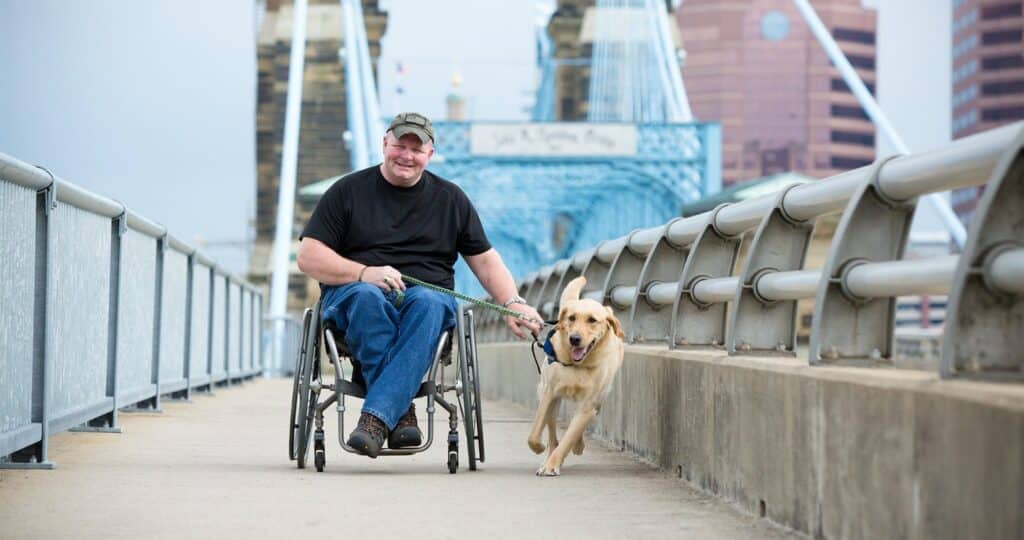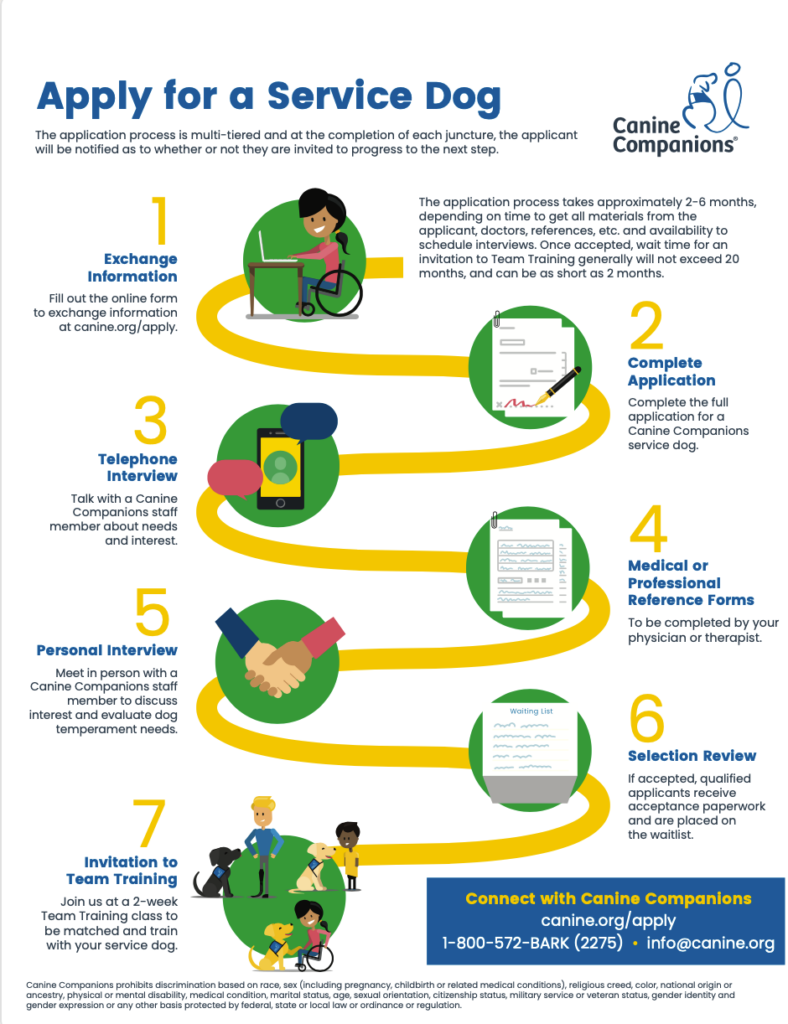Home » Service Dogs » Is a Dog Right for You?
Is a Dog Right for You?
Thank you for your interest in a Canine Companions service or facility dog. Before proceeding with the application process, please read about the service dogs and facility dogs trained by Canine Companions and the Service Dog FAQs.
Note: Applicants for the post-traumatic stress disorder (PTSD) program must be United States Armed Forces veterans.
In order to be considered for a service or facility dog, and to determine whether the Canine Companions program is right for you, we need to get to know each other better. Canine Companions has several basic prerequisites for individuals who may be interested in one of our programs. Please review these questions, which are designed to help you determine whether or not to apply.
- Can you demonstrate that you would benefit from the tasks Canine Companions service or facility dogs are trained to perform?
- Do you have the means and resources to manage and care for a dog? This includes feeding, grooming, exercising the dog and regular visits to a veterinarian.
- Are those who live with you willing to support your relationship with a service or facility dog and comply with basic guidelines established by Canine Companions?
- Once receiving the dog, are you willing to stay engaged with Canine Companions, provide veterinary updates yearly and meet with Canine Companions staff in person at least every 1-2 years?
- Bringing a Canine Companions service or facility dog into your life is a major lifestyle change and commitment. Do you believe you are ready for this change and commitment?
By clicking one of the buttons below, I am acknowledging that:
- I have read about the service dogs and facility dogs trained by Canine Companions
- I have read and understood the Service Dog FAQs
- I understand Canine Companions does not train or place dogs for the following:
- Guide work for the blind
- Seizure or diabetic alert/response
- Balance support while walking
- Managing specific behaviors such as stimming, eloping, etc.
- Provide supervision, navigation, or safety from environmental hazards, aggression or personal protection
- Soley for emotional comfort or social support
Required Age of Applicant
Applicants must be 18 or older to apply for a service, hearing or facility dog; children must be at least 5 years old for a service dog.
Non-Discrimination Policy
All applicants who apply to receive a service dog from Canine Companions will be considered on an individual basis to determine if our program is a good fit for their needs and lifestyle. Canine Companions does not discriminate or deny services to individuals in relation to their: race, color, religion, gender, age, national origin, disability status, protected veteran status, socio-economic status or any other characteristic protected by state or federal law.
No Fundraising Obligation
Those applying for a service or facility dog from Canine Companions are under no obligation to participate in Canine Companions’ fundraising, marketing, or other similar efforts. Any such involvement by the applicant is completely voluntary and has no bearing on the applicant’s involvement in the Canine Companions service and facility dog program, including, but not limited to, matching, placement and team training.
Voluntary Participation
Participation in the Canine Companions client application process is voluntary. You may withdraw your application at any point during the application process.
By clicking one of the buttons below, I am acknowledging that:
- I have read about the service dogs and facility dogs trained by Canine Companions
- I have read and understood the Service Dog FAQs
- I have read and understand the Client Privacy Policy
Submitting a Basic Service Dog Request (or “BSDR”) is the first step of the application process for all applicants, including successors. Once submitted, our staff will review the applicant’s BSDR. This typically takes 4-6 weeks. If our program aligns with an applicant’s goals, the applicant will then be emailed a comprehensive online application.
Click the below button to submit a BSDR for a service dog, service dog for veterans with PTSD, hearing dog, or facility dog.



